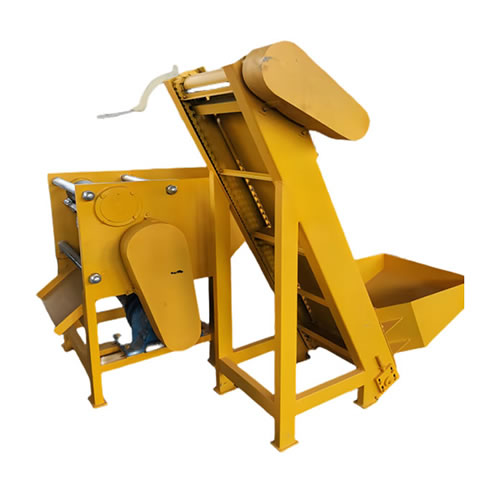High quality and affordable Henan lithium battery discharge equipment provides a boost for the recycling industry of Libya 18650/32650 cylindrical waste batteries
### Title: The Role and Impact of Leading Global Products in Libyan Industrial Demand
In the reconstruction and development process of Libya, there is a huge demand for leading global products. These advanced products play an important role in improving industrial efficiency, promoting technological innovation, and enhancing international competitiveness.
Leading global products can provide high-quality technical support and equipment for key industries such as energy, infrastructure construction, and manufacturing in Libya. Their introduction can help local enterprises improve production processes, reduce costs, and increase output, thereby boosting overall economic growth. For example, in the energy sector, advanced drilling and extraction equipment can improve oil and gas production efficiency; in infrastructure construction, high-performance engineering machinery can accelerate project progress.
These products also have a demonstration effect that can inspire local enterprises to learn from advanced technologies and management concepts, promoting industrial upgrading and innovation in Libya. Moreover, the use of leading global products can enhance the quality and reputation of Libyan products in the international market, facilitating their entry into the global industrial chain and expanding international trade.
However, the introduction of leading global products also faces some challenges, such as high costs and the need for local technical support and maintenance personnel. Therefore, it is necessary for the Libyan government and enterprises to formulate reasonable strategies, strengthen cooperation with international suppliers, and ensure the effective utilization of these products to maximize their role in promoting industrial development.

The recycling industry chain of 18650/32650 cylindrical waste batteries mainly includes the following links:
1. **Collection and Transportation**:
- Collection points are set up to collect used 18650/32650 cylindrical batteries from various sources, such as consumers, businesses, and recycling centers.
- The collected batteries are then transported to treatment facilities using appropriate transportation methods to ensure safety and compliance with regulations.
2. **Sorting and Classification**:
- Upon arrival at the treatment facility, the batteries are sorted based on their type, size, and state of charge. This helps in efficiently processing them further.
- Any non-battery materials or damaged batteries are separated out for proper disposal or treatment.
3. **Dismantling and Shredding**:
- The sorted batteries are dismantled to remove external components such as casings and terminals.
- The battery cells are then shredded or crushed to liberate the internal materials, including the electrodes (cathode and anode), electrolyte, and separators.
4. **Separation and Purification**:
- Various physical and chemical processes are employed to separate the different materials. Common methods include mechanical separation, magnetic separation, gravity separation, and chemical leaching.
- The separated materials are then purified to remove impurities and recover high-purity metals and other valuable substances.
5. **Recycling and Reuse**:
- The recovered materials, such as lithium, cobalt, nickel, and copper, are processed into raw materials for manufacturing new batteries or other products.
- The recycled materials help reduce the need for virgin resources and contribute to environmental sustainability.
In summary, the recycling industry chain of 18650/32650 cylindrical waste batteries encompasses collection, sorting, dismantling, separation, purification, and recycling, playing a crucial role in resource conservation and environmental protection.

### The Intelligent Upgrade of Lithium Battery Discharge Devices: An Inevitable Choice for Efficiency
In the realm of energy storage and management, lithium battery discharge devices play a pivotal role. With the relentless pursuit of efficiency, their intelligent upgrade has emerged as an inevitable choice.
Traditionally, these devices have relied on basic mechanisms to regulate the discharge process. However, advancements in technology have paved the way for smarter solutions. Intelligent upgrades encompass features such as real-time monitoring, adaptive control algorithms, and data analytics. Real-time monitoring allows for precise tracking of battery parameters, ensuring optimal performance and preventing overdischarge or underdischarge. Adaptive control algorithms can dynamically adjust the discharge rate based on the battery's state and the load requirements. This not only extends the battery's lifespan but also enhances its overall efficiency. Data analytics provide valuable insights into the battery's health and usage patterns, enabling proactive maintenance and further optimization.
Moreover, the integration of artificial intelligence and machine learning enables predictive capabilities. The system can anticipate potential issues and make preemptive adjustments, minimizing downtime and maximizing productivity. For industries that heavily rely on lithium batteries, such as electric vehicles, renewable energy systems, and portable electronics, the intelligent upgrade of discharge devices is a game-changer. It translates into longer battery life, faster charging times, and ultimately, cost savings.
In conclusion, the intelligent upgrade of lithium battery discharge devices is not just a trend but a necessity for those who seek to提高效率. Embracing this technological advancement ensures a more sustainable and efficient future for energy storage and utilization.
Overall, Libya, as an important industrial base for China, has a large demand for the recycling and processing of 18650/32650 cylindrical waste batteries, which in turn leads to a correspondingly high demand for lithium battery discharge equipment and other products. As a technology mature and environmentally friendly water treatment agent, lithium battery discharge equipment has a broad application prospect in the recycling and processing of 18650/32650 cylindrical waste batteries in Libya. It is expected to make a greater contribution to the ecological and environmental protection of the recycling of 18650/32650 cylindrical waste batteries. Maoxin Machinery wishes all our customers in Libya who use lithium battery discharge equipment: May our cooperation bloom like flowers, radiating the most beautiful brilliance. We wish all our friends, the customers of lithium battery discharge equipment in Libya, prosperity and wealth!